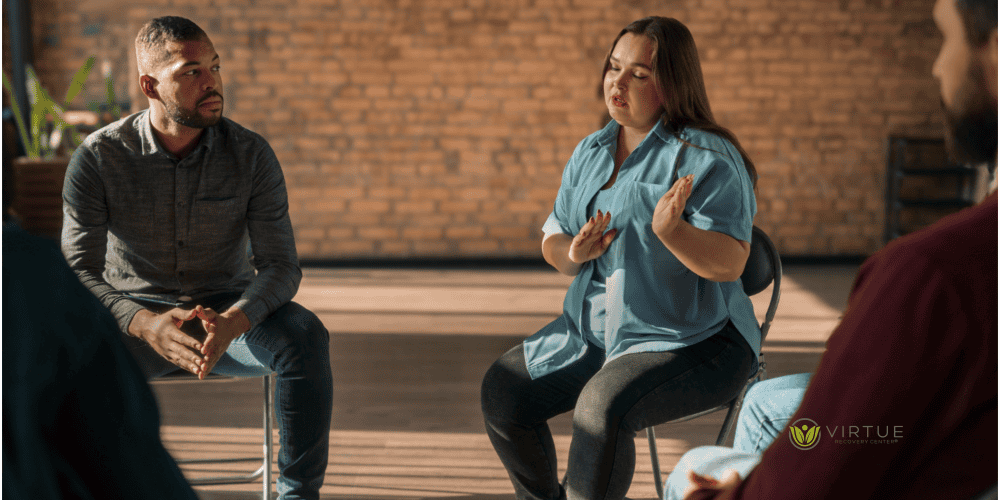Key Takeaways:
- Drug detox is the most important medical and psychological step that safely removes drugs from the body and gets people ready for more therapy.
- Detox helps with more than just physical withdrawal symptoms; it also lays the groundwork for mental health and sobriety.
- Specialized programs, like inpatient vs. outpatient, and medical help can lower chances, especially when there are other illnesses, like PTSD or post-traumatic stress disorder in Phoenix, Mesa, Tempe, or Scottsdale.
- Combining behavioral therapy, mind-body approaches, and reliable support systems increases the chances of long-term success.
Introduction
Entering recovery may feel like both a significant step into the unknown and the most crucial thing you’ve ever done. Drug detox is the most important initial step on this journey to getting back to being physically healthy, emotionally stable, and mentally clear. Detoxification may sound intimidating, but it provides the body with a secure and regulated environment to eliminate toxic chemicals. This lets people start to deal with the underlying causes of their addiction.In addition, the detox stage is more than just cleansing the body. People should use this time to start reconnecting with who they are. With medical supervision, safe withdrawal management makes sure that the first few days of recovery aren’t full of anxiety or suffering. This sets the way for deeper healing and long-term sobriety.What is the Science Behind Detoxing and Mental Health?
There is a lot of scientific data that supports medical cleansing. The National Institute on Drug Abuse and professional guidelines say that detox works best when it is accompanied by behavioral therapy and medication-assisted treatment. Supplements alone don’t get rid of addiction; they just get people ready for the labor ahead.TIP 45 from the Substance Abuse and Mental Health Services Administration says that detox can often cause emotional and mental problems like worry, depression, and trouble sleeping. This illustrates the importance of supervised detox, which is what programs like the Medical Detox Program provide. It creates a safe space where both physical symptoms and early emotional issues can be effectively addressed.
Why Is It Crucial to Address Mental Health Disorders During Detox?
A lot of people who go to detox also have additional mental health problems, which are often called co-occurring ordual diagnoses. Substance use disorders commonly go hand in hand with mental health problems like depression, anxiety, bipolar disorder, and PTSD. This makes things even more complicated. The University of Minnesota recommends treating co-occurring disorders simultaneously for optimal results.For instance, someone in Phoenix, Mesa, Tempe, or Scottsdale who has post-traumatic stress disorder in Phoenix might use drugs to calm themselves down. If PTSD isn’t treated properly throughout detox, the chances of relapse are way up. This is why it is so important to have programs that include mental health assessments and specific types of therapy, such as Motivational Interviewing, when suitable.What Types of Detox Programs Exist and How Do They Help?
Detox isn’t the same for everyone; it can be changed to match each person’s needs:- Inpatient (residential) detox provides medical care around the clock, which is best for people with severe addictions or physical and psychiatric disorders that happen at the same time.
- Outpatient detox is good for people who have mild to moderate symptoms and a steady support network.
- Medically supervised detox, which might include drugs like methadone, buprenorphine for opioids, or benzodiazepines for alcohol withdrawal, makes physical stress a lot easier to deal with.
What Mind–Body and Behavioral Interventions Do?
Medical stability is crucial, but behavioral therapy and mind-body practices are what truly sustain recovery. Harvard Health says that mind-body medicine approaches, including mindfulness, meditation, and yoga, have been demonstrated to lower cravings, stress, and the chance of relapse.Cognitive Behavioral Therapy (CBT), Motivational Interviewing, and relapse prevention frameworks are examples of evidence-based therapy techniques that are routinely used during detox as tools to get ready. These therapies not only help people get over their addictions, but they also teach them how to deal with emotional triggers after detox.How Can You Mentally Prepare for the Detox Journey?
Moving into detox can make you feel anxious and scared. Getting your mind ready is important. Patients considering detoxification can benefit from learning about the process and setting realistic goals. The internal resource How to Mentally Prepare for Drug and Alcohol Rehab lists things like creating goals, making plans to deal with stress, and figuring out if you’re ready—all of which can help people confront this struggle with strength and clarity.Why Is a Support System Vital for Recovery Success?
Recovery doesn’t happen well when you’re alone. Structured support from family, friends, experienced counselors, or mutual aid groups can make a significant difference in outcomes. Johns Hopkins emphasizes the importance of having secure living situations to help individuals stay on the road to recovery.Marketplace plans, which are types of health insurance, often provide basic benefits that include detox and behavioral health therapies. People in Phoenix, Mesa, Tempe, and Scottsdale can keep getting care from detox to outpatient therapy and beyond by using these options.Final Thoughts
Drug detox is more than just getting rid of drugs from the body; it’s the first step toward long-term sobriety and mental health. Detox can be a life-changing experience when it is done under medical supervision, with personalized behavioral therapy, and strong aftercare.Accepting detox is accepting hope. We know how brave it is to get help at Virtue Recovery, and we’re here to help you every step of the way. Pick a path that is based on kindness, knowledge, and constant help.Contact Virtue Recovery at Tel: 866.985.9980today!Frequently Asked Questions
1. What Is The Difference Between Detox For Medical Reasons And Detox For Non-Medical Reasons?
Medical detox uses drugs and healthcare specialists to help people safely deal with withdrawal. Detoxing without this assistance is called “non-medical detox,” and it can be dangerous.2. Can Detox Get Rid Of Addiction?
No. Detox helps with physical reliance. To fully heal, you need ongoing therapy, behavioral support, and typically medication-assisted treatment.3. How Long Does Detox Take?
Usually, it lasts between 3 and 14 days, but this might vary based on how bad the addiction is, what kind it is, and the person’s health.4. What Happens If Someone Goes Back To Drugs After Detox?
Relapse does not mean you failed. This means that the treatment strategy needs to be adjusted by adding more support, therapy, or modifying the medications.5. Is Detox Covered By Insurance?
Most U.S. insurance plans, such as Marketplace plans, provide mental health and substance abuse treatment as a basic benefit.How Does Drug Detox Support Long-Term Recovery Offered by Virtue Recovery Center?
Drug detox at Virtue Recovery Center serves as the critical first step in achieving lasting addiction recovery. By providing a safe, supportive environment, individuals can cleanse their bodies of substances while receiving personalized care. This foundational process fosters resilience, empowering clients to embrace healthier lifestyles and maintain long-term sobriety.









